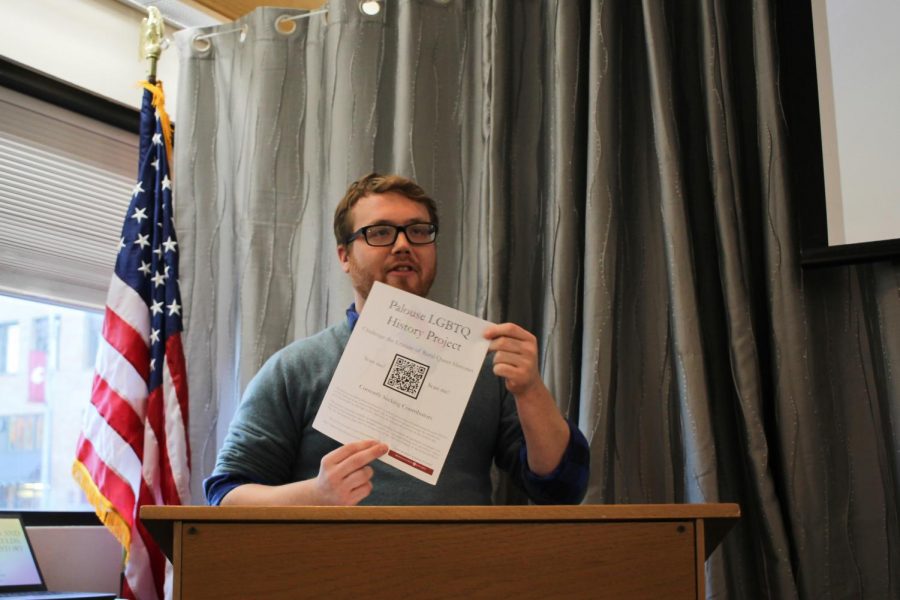Guest covers LGBTQ history of the Palouse
‘Gay history is not necessarily a story of linear progress… not.. everything gets better’
Brian Stack, Ph.D. candidate in the WSU history department, talks about the Palouse LGBTQ History Project Thursday at the Neill Public Library.
October 11, 2019
Neill Public Library hosted a guest speaker to talk about queer history in the Palouse region from the 1970s to today.
Brian Stack, Ph.D. candidate in the WSU history department, introduced the Palouse LGBTQ history project, a digital exhibit consisting of articles, photographs and other artifacts.
This project addressed topics which have impacted university members as well as the broader community.
He said the LGBTQ community has faced a difficult journey to receive the recognition they have today.
“One thing I want to stress is, gay history is not necessarily a story of linear progress. It’s not necessarily everything gets better and better,” he said. “We often think of history as moving towards a progressive narrative, but not so much with lesbian and gay history.”
Stack said he found more information relating to the topic than he initially thought he would.
“When I was looking for information from The Daily Evergreen, I was expecting to find a dozen articles, but I found hundreds,” he said.
Stack discussed a few organizations in the Pacific Northwest and WSU that have supported the LGBTQ community. One of the organizations is Northwest Gay Peoples Alliance (NWGPA) which was established in 1974 by Vicki Rishling.
He said this alliance was a result of people who did not think enough was being done for the LGBTQ members.
Stack said another organization to help the beginning of this movement at WSU, was the Gay Awareness Committee (GAC) formed within ASWSU.
“It was on November 19, 1975 that it was established and the vote was 14 to 3, so there was quite a bit of support,” he said.
However, in 1979, WSU questioned if ASWSU should remove funding for gay awareness and unrecognize them as a club altogether, he said. The issue was later put on the ASWSU ballot and 61 percent voted it should not receive funding.
Stack said later on, an organization named Gay, Lesbian, Bisexual and Allies Program (GLBA) opened in the CUB basement and led to the beginning of what is known today as GIESORC in 2006.
Audience member Valerie Rice asked Stack if he is planning to expand his project with information before the 1970s.
“When I did a search, I didn’t find anything very cool and fascinating for that time period, which was disappointing,” he said. “I would love to have more from an earlier era.”
Rice also asked if any of his work will be on display.
“If you know of people who have more artifacts, I would love to expand the project and display it,” he said.









